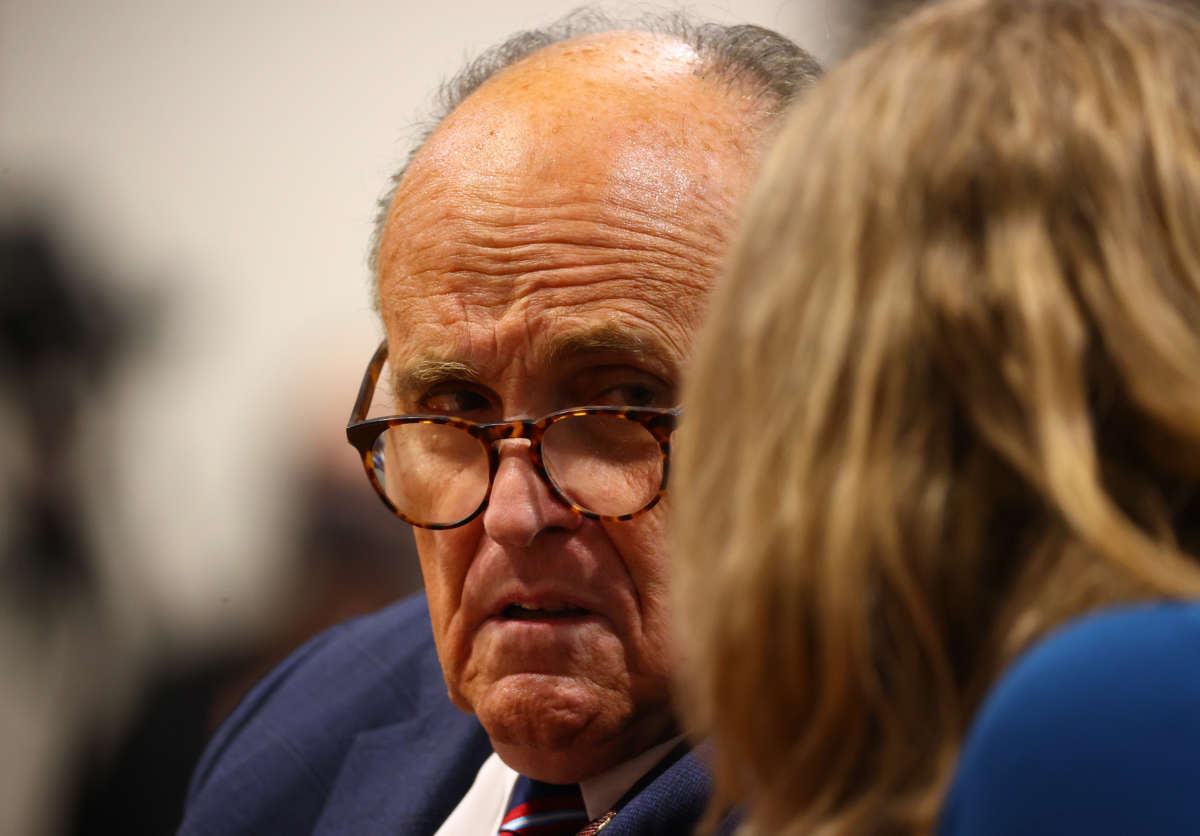Members of the House select committee investigating the January 6, 2021, attack on the U.S. Capitol building have said that they expect Rudy Giuliani, who previously served as a personal lawyer to former President Donald Trump, to abide by a subpoena order issued to him last month.
That subpoena order demands that Giuliani hand over documents relating to the attack and to a plan to overturn the outcome of the 2020 presidential race. Giuliani has also been ordered to speak with the committee’s investigators in a closed-door deposition.
Giuliani was scheduled to speak with the January 6 commission last week, but rescheduled, an aide to the select committee said.
In an appearance on CBS’s “Face the Nation” on Sunday, committee member Rep. Adam Kinzinger (R-Illinois) said he and other members of the panel expect Giuliani to cooperate in spite of the delay.
“Our expectation is he is going to cooperate because that’s the law, that’s the requirement, same as if somebody subpoenaed to court,” Kinzinger said.
“There may be some changes and dates and moments here as, you know, lawyers do their back and forth,” Kinzinger added. “But we fully expect that, in accordance with the law, we’ll hear from Rudy.”
According to reporting from ABC News, Giuliani has been in active discussions with the January 6 commission, laying out the framework for his testimony. Sources told ABC News that no formal deal has been finalized, and that negotiations could easily fall apart over the next few days.
In a letter that the committee sent to Giuliani outlining their subpoena order last month, the committee explained that they wish to speak with him regarding his “publicly promoted claims that the 2020 election was stolen” and his “attempts to disrupt or delay the certification of the election results.” The committee also cited witness testimony purporting that Giuliani, in December 2020, “urged President Trump to direct the seizure of voting machines around the country after being told that the Department of Homeland Security had no lawful authority to do so.”
Shortly after the subpoena order was issued, it was revealed that Giuliani worked alongside other Trump campaign officials to coordinate a scheme to use fake electors to disrupt the certification of the Electoral College, which was set to take place on January 6, 2021.
Giuliani and other Trump campaign officials devised a plan to use fake electors to submit forged election documents, wrongfully claiming that Trump had won states that were actually won by President Joe Biden. The fake documents were sent to the National Archives and Congress to be counted in the Electoral College; the Trump allies behind the scheme hoped that then-Vice President Mike Pence would either accept the fraudulent votes as real, or say that he couldn’t count any of the votes out of confusion over which were legitimate – allowing them to exploit the mechanisms of the U.S. Constitution to secure Trump’s reelection to the presidency, in spite of him losing the popular vote and the Electoral College to Biden.
Committee members have said they want to investigate the scheme further.
“We want to look at the fraudulent activity that was contained in the preparation of these fake Electoral College certificates,” said January 6 commission member Rep. Jamie Raskin (D-Maryland). “And then we want to look to see to what extent this was part of a comprehensive plan to overthrow the 2020 election.”
Join us in defending the truth before it’s too late
The future of independent journalism is uncertain, and the consequences of losing it are too grave to ignore. To ensure Truthout remains safe, strong, and free, we need to raise $46,000 in the next 7 days. Every dollar raised goes directly toward the costs of producing news you can trust.
Please give what you can — because by supporting us with a tax-deductible donation, you’re not just preserving a source of news, you’re helping to safeguard what’s left of our democracy.
